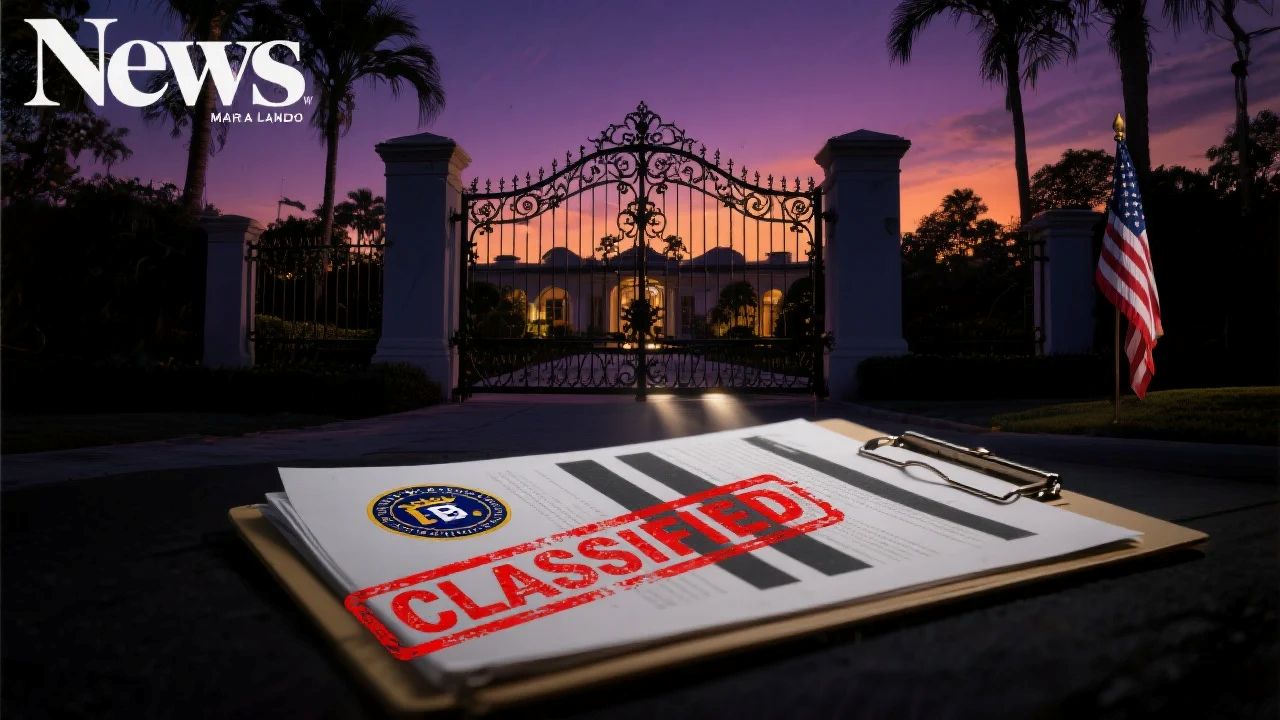
The FBI’s decision to black out Trump’s name from the recently reviewed Epstein files has set off a fresh round of suspicion and debate, especially given the well-documented history between Trump, Epstein, and Mar-a-Lago.
The move, which came as part of a broader sweep that redacted the names of several high-profile individuals, has only deepened the public’s appetite for answers—and, for some, confirmed their worst suspicions about the government’s willingness to shield the powerful.
A Directive From the Top
According to multiple reports, including a detailed account in Newsweek, the FBI instructed roughly 1,000 agents to flag any mention of Trump during a March review of about 100,000 pages of Epstein-related records. The directive was clear: any reference to Trump, who was a private citizen at the time of the original Epstein investigation, was to be redacted before the files were sent up the chain to Attorney General Pam Bondi and, ultimately, to the White House. The official rationale? Privacy protections for individuals not charged with a crime, a standard move under FOIA law, but one that feels increasingly hollow in the context of a case that has always been about the abuse of power and the protection of privilege.
The Mar-a-Lago Connection
The Mar-a-Lago angle is impossible to ignore. Epstein’s recruitment of underage girls for his trafficking operation is known to have included at least one victim who worked at Trump’s Palm Beach club. Virginia Giuffre, perhaps the most prominent Epstein survivor, has said she was “stolen” from her job at the Mar-a-Lago spa by Epstein and Ghislaine Maxwell. Trump himself has acknowledged this, telling reporters that Epstein “stole” Giuffre and others from his club, a claim that’s as much about distancing himself as it is about clarifying the record said the Daily Mail.
A Friendship, Then a Falling Out
Trump and Epstein’s relationship is well-documented, stretching back to the late 1980s. They were seen together at parties in New York and Palm Beach, and Trump once described Epstein as a “terrific guy” who “likes beautiful women as much as I do, and many of them are on the younger side.” Flight logs show Trump took at least eight flights on Epstein’s private jet, though always between New York and Florida—not to Epstein’s infamous island. The friendship reportedly soured in the mid-2000s, with Trump later claiming he banned Epstein from Mar-a-Lago as per PBS NewsHour.
The Politics of Secrecy
The redactions have become a political football. Senator Dick Durbin, the top Democrat on the Senate Judiciary Committee, sent letters to the Justice Department and FBI demanding to know why so many resources were devoted to reviewing and redacting the Epstein files, and why agents were specifically told to flag any mention of Trump. The official response has been a wall of silence, with the FBI declining to comment and the Justice Department insisting there is no “client list” or evidence linking Trump to criminal activity as per CNBC.
But the optics are hard to ignore. Trump, who once made the release of the Epstein files a campaign promise, is now urging his supporters to “move on.” Conservative influencers who once demanded transparency have fallen in line, echoing the administration’s new line that there’s nothing more to see here.
What’s Really Being Protected?
The official justification for the redactions—protecting the privacy of uncharged individuals—has precedent. But in a case where the abuse of young women was enabled by a network of the rich and powerful, the public’s patience for secrecy is thin. The fact that Trump’s name was redacted, even as his own administration declared the case closed, only adds to the sense that the rules are different for those at the top.
The Epstein files have always been a Rorschach test for American anxieties about power, privilege, and accountability. The latest round of redactions, and the government’s refusal to release more, will do little to quiet those anxieties. If anything, they’ve made the questions louder.
